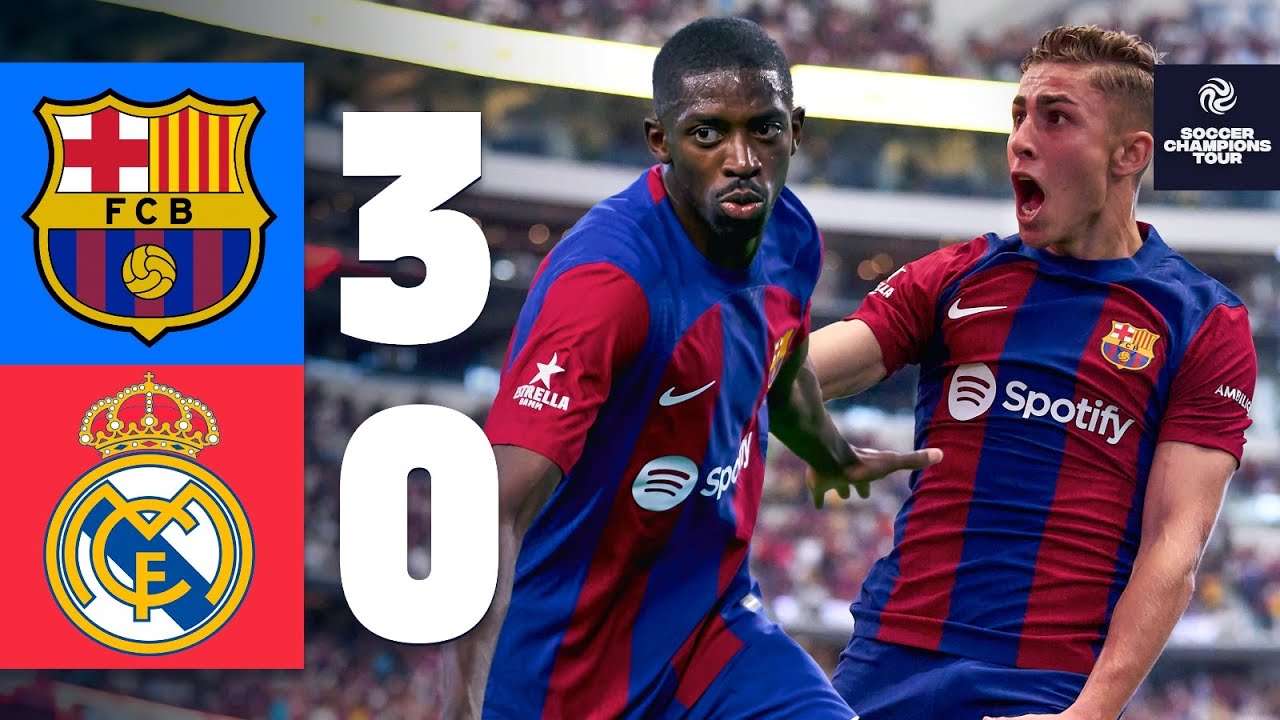Barca Versus Madrid

In the realm of football, few rivalries evoke as much passion, history, and intensity as the perpetual battle between FC Barcelona and Real Madrid CF. The clash between these two titans of Spanish football, known simply as “El Clásico,” transcends sport, representing cultural, political, and social divides. With a legacy spanning over a century, the Barça vs. Madrid rivalry is not merely a contest on the field but a reflection of the essence of Spanish football itself.
Origins and Evolution:
The roots of this historic rivalry trace back to the early 20th century when both clubs emerged as powerhouses in Spanish football. Real Madrid, founded in 1902, represented the Spanish monarchy and the capital city, while FC Barcelona, established in 1899, symbolized the Catalan region’s identity and aspirations for independence. This stark contrast in ideologies and regional affiliations laid the foundation for a rivalry that would endure for generations.
Over the years, the rivalry has evolved beyond its geographical and cultural dimensions. It has become a battle between contrasting footballing philosophies. Real Madrid, often associated with Galácticos and a more pragmatic style of play, emphasizes star power and global appeal. In contrast, FC Barcelona, with its renowned La Masia academy and commitment to tiki-taka football, embodies a philosophy of possession-based, aesthetically pleasing football.
Key Moments and Iconic Encounters:
Throughout history, El Clásico has witnessed numerous memorable moments that have etched themselves into the annals of footballing lore. From legendary players gracing the pitch to iconic goals that have defined eras, each encounter adds another chapter to the rich tapestry of this historic rivalry.
One such moment occurred in 1943 when FC Barcelona defeated Real Madrid 5-0 at the Les Corts stadium, a result that remains etched in the memories of Barça fans as a symbol of dominance. Fast forward to 2009, and the rivalry reached its zenith during Pep Guardiola’s tenure as Barcelona manager. In a display of sublime footballing artistry, Barcelona defeated Real Madrid 6-2 at the Santiago Bernabéu stadium, leaving an indelible mark on El Clásico history.
In recent years, the rivalry has been defined by the individual brilliance of players such as Lionel Messi for Barcelona and Cristiano Ronaldo for Real Madrid. Their captivating duels on the pitch have captivated audiences worldwide, adding another layer of intrigue to an already intense rivalry.
Beyond Football: Cultural Significance:
El Clásico transcends the boundaries of sport, permeating into the cultural fabric of Spain and beyond. It serves as a reflection of the socio-political dynamics that have shaped Spanish society, particularly in Catalonia.
For Catalans, FC Barcelona represents more than just a football club; it embodies their distinct cultural identity and aspirations for autonomy. The club’s motto, “Més que un club” (More than a club), encapsulates its role as a symbol of Catalan pride and resilience in the face of political adversity.
Conversely, Real Madrid’s significance extends beyond the football pitch, symbolizing the unity of Spain and its capital’s cultural and political hegemony. The club’s motto, “Hala Madrid,” reflects its status as a rallying cry for Spanish nationalism and unity.
The rivalry between Barça and Madrid mirrors the broader tensions between centralism and regionalism in Spain. It serves as a platform for the expression of cultural, linguistic, and political identities, making it a deeply ingrained aspect of Spanish society.
Looking Ahead:
As the rivalry between FC Barcelona and Real Madrid continues to evolve, its significance shows no signs of waning. Despite changes in personnel, tactics, and management, El Clásico remains the pinnacle of Spanish football, captivating audiences worldwide with its blend of skill, drama, and passion.
In an ever-changing football landscape, one thing remains constant: the eternal rivalry between Barça and Madrid. Whether it’s on the pitch or off it, El Clásico transcends sport, embodying the essence of Spanish football and the cultural complexities of the Iberian Peninsula. As fans eagerly anticipate each encounter between these two footballing giants, one thing is certain: the legacy of El Clásico will endure for generations to come.





